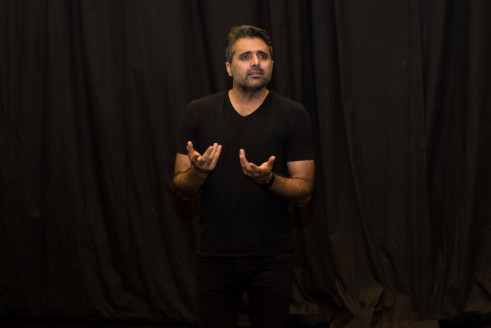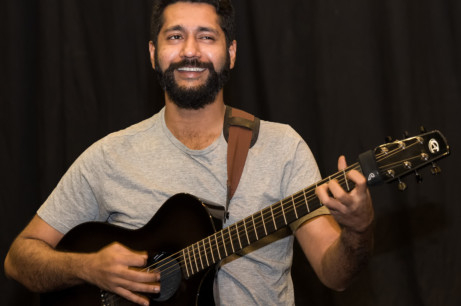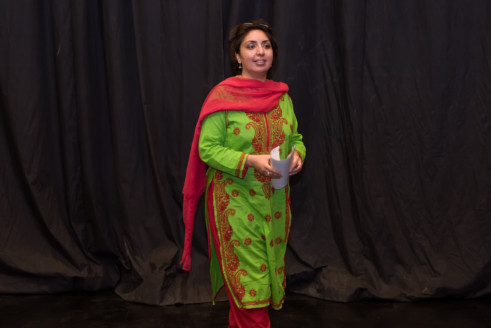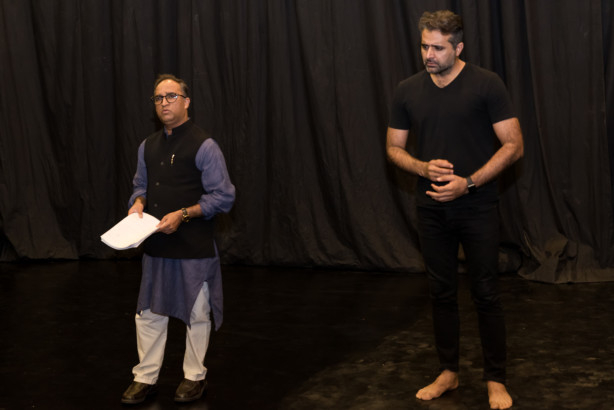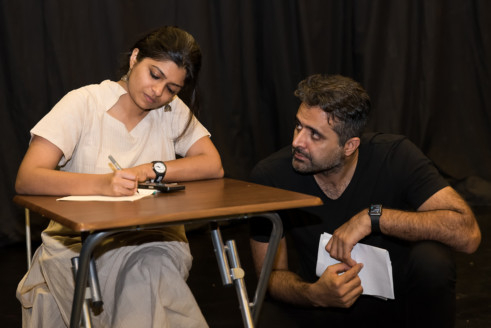
Amna Khaishgi’s relationship with letter-writing and Urdu began when she was seven years old. “I used to write letters for my grandmother, because she was not educated. She was very close to her family back in India… and so I used to write a lot to her brother, sister, nephew, nieces. And I was the one who used to read the answers [replies] to her.”
In an interview with Gulf News tabloid!, she recalls that the camaraderie she shared with her paternal grandma while in Pakistan has stayed with her and partly informed the letters she has written for Mian Biwi aur Wagah, a play being performed at The Junction, Dubai, on August 11 and 12. Khaishgi also stars in the play as Biwi, or wife.
What began as disjointed thoughts — the realisation that letter-writing is a dying art and wanting to do something to try and revive it — has turned into an invitation into a family, a husband and a wife’s thought process, along with providing a commentary on the times we live in.
Khaishgi’s husband Ehtesham Shahid, who also plays her on-stage partner as Mian, says we live in a period of technology-driven information fatigue.
Mian Biwi aur Wagah is set in modern times, but uses letter-writing as a mode of storytelling that propels us through time and space, socio-politics and relationships. The journey is told through notes, written in Urdu by the couple, to various friends, acquaintances and one another. Other epistolary plays are Tumhari Amrita, an Indian adaptation of A. R. Gurney’s American play, Love Letters, and Hate Mail by Bill Corbett.
“To bring about a concept of reading letters, of writing letters, of receiving letters — I think these very qualities in itself hold quintessential properties of stagecraft,” says Druti Shah D’souza, a Dubai-based writer, actor, and director of the play.
To keep the tale fast-paced instead of a boring litany of monologues, Shah D’souza used theatrical elements.
“I’ve converted some of the letters into soliloquies, some letters I’ve converted into a conversation in retrospect and in [the] present; one of the letters is actually banter between a wife and husband, where the wife is sitting in the bedroom and you can hear her voice and you can see how the husband is responding to every line that the wife has written,” she explains.
Khaishgi and Shahid, who are UAE-based journalists by day, acknowledge the reservations they had about sharing their letters — they are personal creatures — but say penning the words was easy enough. The only thing they had to do was ensure the replies complemented each other. “[Deciding on] the subject was more important. The writing process didn’t actually take us a long time… maybe a couple of hours was enough to write one letter and then we could move to another subject,” explains Shahid.
And where does Wagah — a border line between India and Pakistan — come in? Shah D’souza says the idea of animating the voice of Wagah, of exploring what the place thought about what was happening, ‘if Wagah was a person’, intrigued the crew. Thus his voice is interspersed within the story as well. And just as he writes to those living on either side of him post a bloody partition, Biwi, played by Khaishgi, writes to him. “You are not just parting us, you are uniting us [too],” she says.
___
Don’t miss it!
Mian Biwi aur Wagah runs at The Junction on August 11 and 12. Tickets to the show, which starts at 7.30pm, are Dh100.



